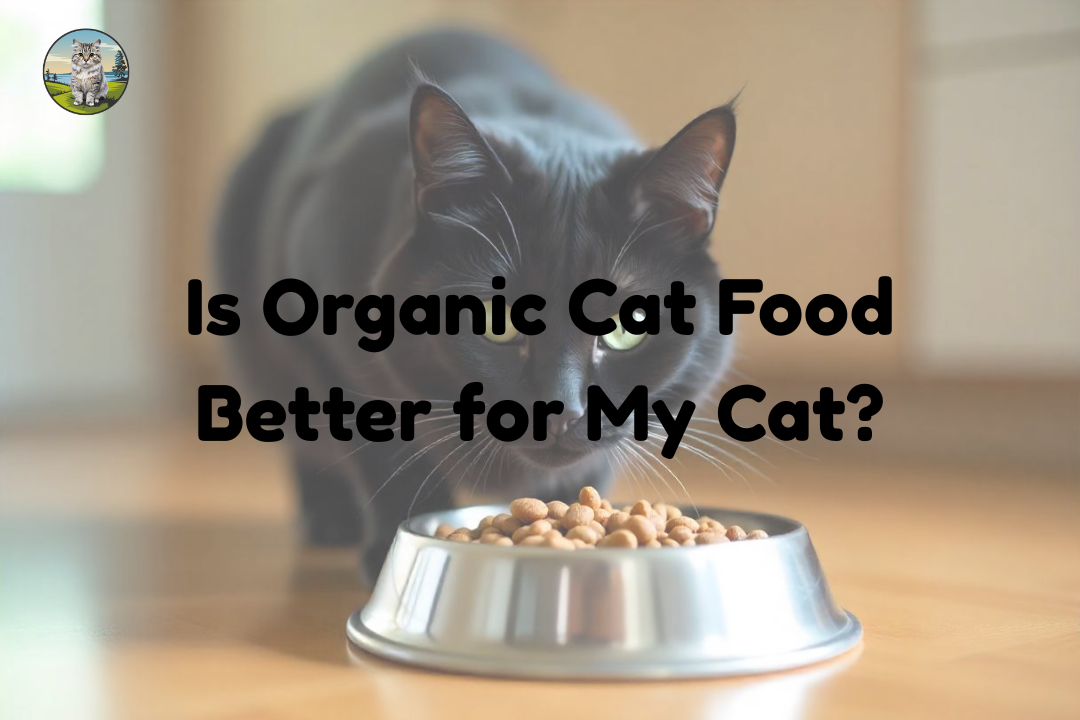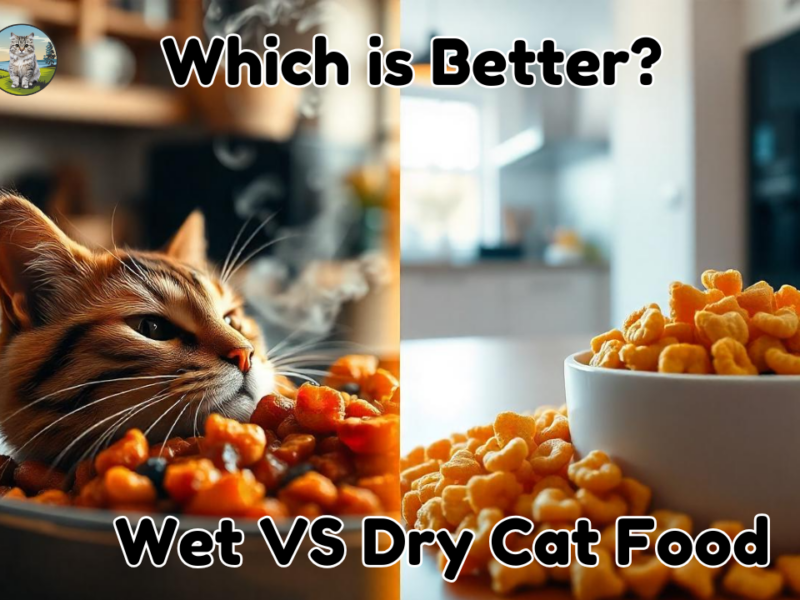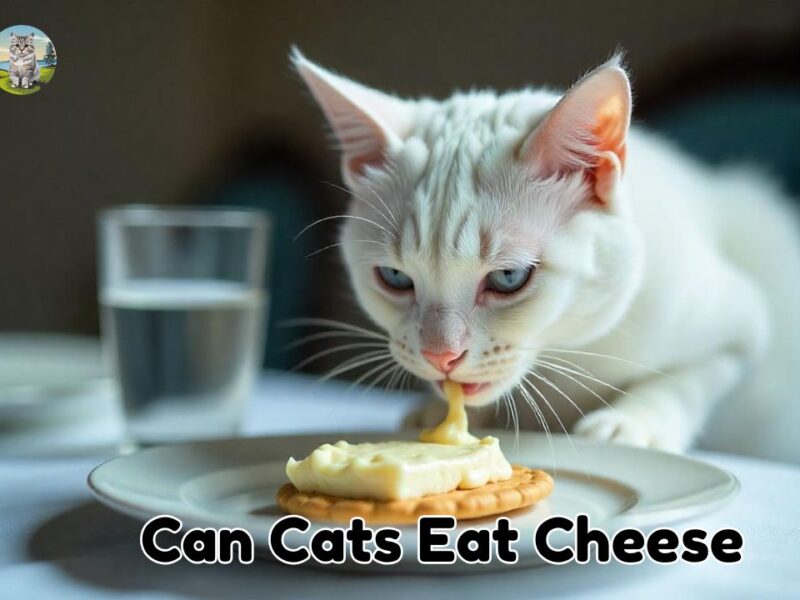As a cat owner, you want the best for your furry friend. From cozy beds to fun toys, you do everything to keep them happy and healthy. But one of the most important things you can do for your cat is to feed them the right food. With so many options out there, it can be confusing to know what’s best. One question many cat parents ask is: Is organic cat food better for my cat?
In this article, we’ll break down what organic cat food is, its benefits, potential downsides, and how to decide if it’s the right choice for your cat. Let’s dive in!
What Is Organic Cat Food?
Organic cat food is made from ingredients that are grown or raised without synthetic chemicals like pesticides, fertilizers, or antibiotics. These ingredients come from farms that follow strict rules to ensure they are natural and safe. For example, organic chicken in cat food means the chickens were raised without antibiotics or artificial hormones and were fed organic feed.
To be called “organic,” cat food must meet certain standards set by organizations like the USDA (United States Department of Agriculture). This means the food has been checked and approved to make sure it’s truly organic.
Benefits of Organic Cat Food for Your Cat
No Harmful Chemicals
One of the biggest reasons pet parents choose organic cat food is to avoid harmful chemicals. Non-organic foods can have traces of pesticides or fertilizers, which might not be good for your cat in the long run. Organic cat food skips these chemicals, making it a safer choice.
No Artificial Additives
Many regular cat foods contain artificial flavors, colors, and preservatives. These additives can cause allergies or stomach problems in some cats. Organic cat food uses natural ingredients, so you don’t have to worry about these unnecessary extras.
Better Nutrition
Organic farming often results in healthier crops with more nutrients. This means organic cat food can have more vitamins, minerals, and antioxidants than non-organic options. A diet rich in these nutrients can help your cat stay active, maintain a shiny coat, and support their immune system.
Good for the Planet
Organic farming is better for the environment. It uses less water, reduces pollution, and avoids harmful chemicals that can damage the soil. By choosing organic cat food, you’re not just helping your cat—you’re also helping the planet.
Fewer Allergies
Some cats are sensitive to certain ingredients in their food. Organic cat food is made with simple, natural ingredients, which can be easier for your cat to digest. This makes it a great option for cats with food allergies or sensitive stomachs.
Things to Consider Before Switching to Organic Cat Food
While organic cat food has many benefits, there are a few things to keep in mind before making the switch:
It Can Be Expensive
Organic cat food usually costs more than regular cat food. This is because organic farming is more labor-intensive and requires stricter standards. If you’re on a tight budget, this might be something to think about.
Not Always Easy to Find
Depending on where you live, organic cat food might not be available at your local store. You may need to shop online or visit a specialty pet store to find a good selection.
Quality Varies
Just because a product says “organic” doesn’t always mean it’s the best choice. Some brands might use the label to charge more without offering better nutrition. Always check the ingredients and choose a trusted brand.
How to Choose the Best Organic Cat Food for Your Cat
If you’ve decided to try organic cat food, here are some tips to help you pick the right one:
Check the Ingredients
Look for cat food that lists real meat (like chicken, turkey, or fish) as the first ingredient. Avoid foods with fillers like corn or soy, as these don’t provide much nutrition for your cat.
Look for Certification
Make sure the product has a real organic certification, like the USDA Organic seal. This means the food meets strict standards and is truly organic.
Think About Your Cat’s Needs
Every cat is different. Kittens, adult cats, and senior cats all have different nutritional needs. If your cat has health issues or allergies, talk to your vet before switching to organic food.
Read Reviews
Take some time to read reviews from other cat owners. This can help you find a brand that’s high-quality and trustworthy.
Is Organic Cat Food Worth It?
The answer depends on your cat and your priorities. If you want to avoid chemicals, artificial additives, and low-quality ingredients, organic cat food is a great choice. It can give you peace of mind knowing you’re feeding your cat something healthy and natural.
However, if you’re on a budget or can’t find organic options easily, you can still feed your cat well by choosing high-quality non-organic food. Look for products with whole, natural ingredients and avoid those with artificial additives.
What Do Vets Say About Organic Cat Food?
Many veterinarians agree that organic cat food can be a good option, especially for cats with allergies or sensitivities. However, they also emphasize that the most important thing is to feed your cat a balanced diet that meets their nutritional needs. Whether the food is organic or not, it should have the right mix of protein, fats, and carbohydrates to keep your cat healthy.
If you’re unsure about switching to organic cat food, talk to your vet. They can help you decide what’s best for your cat based on their age, weight, and health.
Tips for Transitioning to Organic Cat Food
If you decide to switch to organic cat food, it’s important to do it slowly. Cats can be picky eaters, and sudden changes in their diet can upset their stomach. Here’s how to make the switch:
Start Small
Mix a small amount of the new organic food with your cat’s current food. Gradually increase the amount of organic food over a week or two.
Watch for Reactions
Keep an eye on your cat during the transition. If they seem to have trouble digesting the new food or show signs of an allergy (like itching or vomiting), stop and talk to your vet.
Be Patient
Some cats take time to adjust to new food. If your cat doesn’t like the organic option at first, try mixing it with a treat or warming it up slightly to make it more appealing.
Final Thoughts
So, is organic cat food better for your cat? It can be, but it’s not the only way to feed your cat well. Organic cat food offers benefits like fewer chemicals, better nutrition, and a smaller environmental footprint. However, it’s also more expensive and not always easy to find.
The most important thing is to choose a high-quality diet that meets your cat’s needs. Whether you go organic or not, your cat will thrive with love, care, and good nutrition.
At the end of the day, every cat is unique. What works for one might not work for another. Pay attention to your cat’s health, energy levels, and preferences, and don’t be afraid to ask your vet for advice. After all, a happy, healthy cat is what every pet parent wants!
By keeping these tips in mind, you can make the best choice for your feline friend. Whether you choose organic or not, your cat will thank you for the love and care you put into their diet. Happy feeding!


